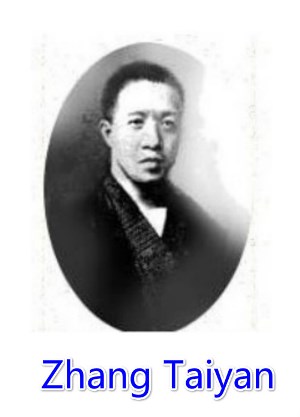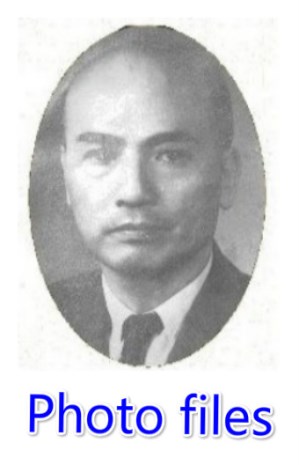

Located in Mengjia, Bo-Pi Liao has documented every little bit of lives of common people, as well as traces of visits by refined scholars for the past 200 years.
Chang Tai-Yan
The residence that Chinese sinologist Chang Tai-Yan took in Taiwan is located at No. 123 Guanzhou Street today. Mr. Chang Tai-Yan (1868-1936), also known as Bing-Lin, was from Yuhan, Zhejiang Province. From December 1898 to June the next year, he took refuge in Taiwan for political reasons. During his stay in Taiwan, Chang Tai-Yan worked as a report for Chinese column of Taiwan Daily News, publishing more than 50 articles criticizing the Qing government and describing his suggestions for and opinions of Taiwan. Chang was very knowledgeable and had great achievements on sinology, history and philology. While staying in Taiwan, he joined a poetry society formed by Japanese; he also responded to Japanese scholars on the newspaper. Because of his contribution to sinology, in 2003, Taipei City government designated his residence in Taiwan, which is located at No. 123 on Guanzhou Street and of great conservation value, as a municipal historic building.
Asho Ro
Dr. Asho Ro (1894-1955), who had been a member of the National Assembly and the director-general of the Taipei Medical Association, owned No 298, 300, 302 on Kunming Street and No. 97 on Guanzhou Street. Asho Ro graduated from the public school of Mengjia, the Medicine Department of Taiwan Governor-General Office and opened his own hospital "Huaian Hospital" (at the intersection of Kangding Road and Guangzhou Street). Specialized in internal medicine and pediatrics, he treated numerous people. He also conducted research on opium in Dr. Somei To's Pharmacology Lab. In 1935, Ro took his doctorate of Medicine in Japan Imperial Kyoto University, and later held positions in Taipei Council, the National Assembly, the director-general of the Taipei Medical Association, the director-general of the Medical Association of Taiwan Province. He also served as a school physician at Lao-Song and Long-Shang public school as well as the PTA president of Long-Shan public school. . Lin Fo-Shu
Lin Fo-Shu formed “Taiwan Economic News Agency” at his residence (Yongxing Ting, at No.163-171 on Kangding Road, issuing approximately 1000 copies a day and mainly reporting food prices in Taipei. Lin was a well-known economics reporter; he had been the chief editorial writer of “New Taiwan People News” and written several economics books including “Highlights of Taiwanese Economy,” “Basic Knowledge about Taiwanese Economy” and “The Management and Distribution Institute of Rice.” Lin actively participated in cultural movements. In 1923, he formed the “Study Group of Taipei Youth” with several other people including Chiang Wei-Shui.
In 1944, because of the wartime news control policy, “Xingnan News” and five other major new agencies in Taiwan were merged with “Taiwan New News,” which after the war was taken over by the Executive Office and renamed “Taiwan Shin Sheng Daily News.” On October 10th, 1945, Lin, together with Yang Yun-Fan-Ping, Wu Zhuo-Liu and Wang Shih-Lang, launched “Taiwan People News,” which was different from the officially supported “Taiwan Shin Sheng Daily News” but focused on Taiwanese’s spirit in fighting against colonization.
Lin was also passionate about Taiwanese literature. In 1964, he took part in a discussion forum that Wu Zhuo-Liu organized for “Taiwan Wenyi” (Taiwan Literature), expressing his opinions of Taiwanese literature. His passion about the Taiwanese society made his life brighter and more colorful.
|



